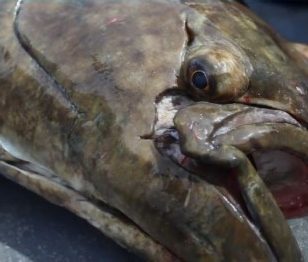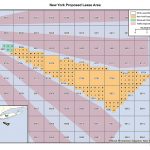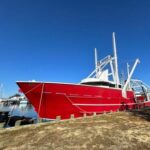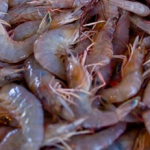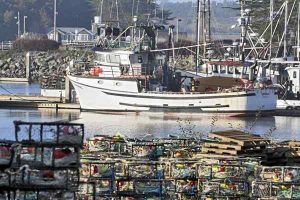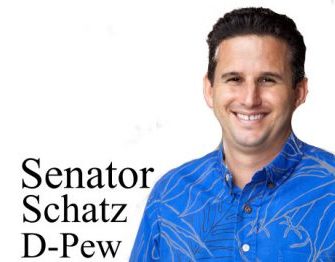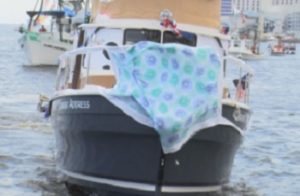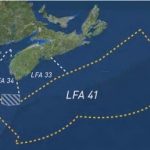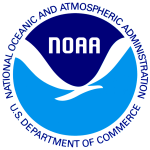Tag Archives: bottom trawl survey
UPDATE: Bottom Trawl Survey of the Maine Research Array Wind Energy Area Re-Scheduled to Begin the Week of January 27, 2025
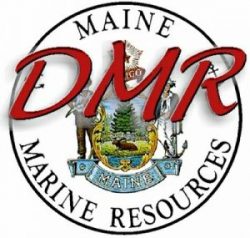 This notice is to inform you that the bottom trawl survey of the Maine Research Array Wind Energy (MeRA) Area, previously scheduled to begin January 13, 2025, is now tentatively scheduled to begin the week of January 27, 2025 and run through March 1, 2025. This remains a tentative timeframe – survey schedules will be posted here on DMR’s website as they are available. The survey will be conducted during seven days within this timeframe. The exact dates will be weather dependent. Operations will be conducted during daylight hours. more, >>CLICK TO READ<< 07:28
This notice is to inform you that the bottom trawl survey of the Maine Research Array Wind Energy (MeRA) Area, previously scheduled to begin January 13, 2025, is now tentatively scheduled to begin the week of January 27, 2025 and run through March 1, 2025. This remains a tentative timeframe – survey schedules will be posted here on DMR’s website as they are available. The survey will be conducted during seven days within this timeframe. The exact dates will be weather dependent. Operations will be conducted during daylight hours. more, >>CLICK TO READ<< 07:28
Bottom Trawl Survey of the Maine Research Array Wind Energy Area Re-Scheduled for January 13, 2025 – March 1, 2025
 This notice is to inform you that the bottom trawl survey of the Maine Research Array Wind Energy (MeRA) Area, previously scheduled to begin on October 15, 2024, has been re-scheduled to take place between January 13, 2025 and March 1, 2025.This is a potential sampling window; the survey will be conducted during 7-10 days within this timeframe. The exact dates will be weather dependent. Operations will be conducted during daylight hours. The F/V Northern Lights (55’ trawler) will transit from Portland to the sampling area. The crew will conduct approximately 37 tows over 7-10 days of sampling. Tows will be 20 minutes and conducted at a speed of 2.5 knots. Links, more, >>CLICK TO READ<< 11:12
This notice is to inform you that the bottom trawl survey of the Maine Research Array Wind Energy (MeRA) Area, previously scheduled to begin on October 15, 2024, has been re-scheduled to take place between January 13, 2025 and March 1, 2025.This is a potential sampling window; the survey will be conducted during 7-10 days within this timeframe. The exact dates will be weather dependent. Operations will be conducted during daylight hours. The F/V Northern Lights (55’ trawler) will transit from Portland to the sampling area. The crew will conduct approximately 37 tows over 7-10 days of sampling. Tows will be 20 minutes and conducted at a speed of 2.5 knots. Links, more, >>CLICK TO READ<< 11:12
Bottom Trawl Survey of the Maine Research Array Wind Energy Area Postponed to Allow for Testing of Survey Method
 This notice is to inform you that the bottom trawl survey of the Maine Research Array Wind Energy (MeRA) Area previously scheduled to begin on October 15, 2024, has been postponed until a date to be determined in early 2025. DMR will use this additional time to continue to test and refine our survey methodology. Between October 15 and November 27, DMR will spend 2-5 days testing the trawl vessel’s gear configuration and performance. This will include a one-day test cruise to the MeRA area and an additional one to four days of test tows as needed to assess and optimize the survey’s gear performance. Any additional testing will occur in federal waters outside of the proposed MeRA sampling area. Links, more, >>CLICK TO READ<< 16:16
This notice is to inform you that the bottom trawl survey of the Maine Research Array Wind Energy (MeRA) Area previously scheduled to begin on October 15, 2024, has been postponed until a date to be determined in early 2025. DMR will use this additional time to continue to test and refine our survey methodology. Between October 15 and November 27, DMR will spend 2-5 days testing the trawl vessel’s gear configuration and performance. This will include a one-day test cruise to the MeRA area and an additional one to four days of test tows as needed to assess and optimize the survey’s gear performance. Any additional testing will occur in federal waters outside of the proposed MeRA sampling area. Links, more, >>CLICK TO READ<< 16:16
NOTICE: Bottom Trawl Survey of the Maine Research Array Wind Energy Area
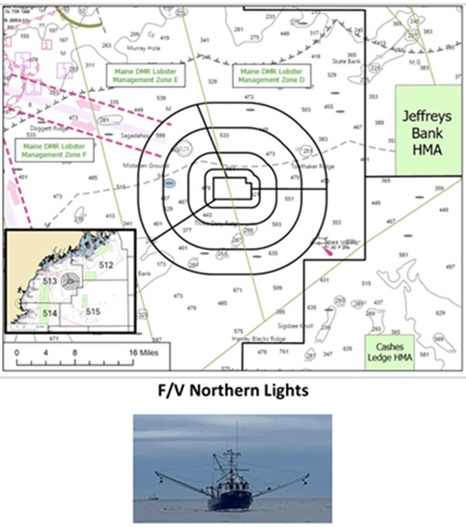 Maine Department of Marine Resources sent this bulletin at 09/23/2024 12:15 PM EDT. more, >>CLICK TO READ<< 12:36
Maine Department of Marine Resources sent this bulletin at 09/23/2024 12:15 PM EDT. more, >>CLICK TO READ<< 12:36
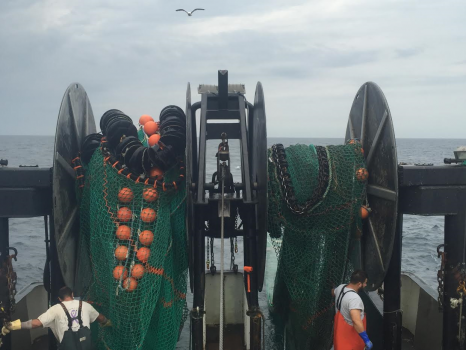
A Clean Sweep On The Ocean Floor
Most of the reporting in the media about commercial fishing and declining stocks in the Northeast dwells on how dire the situation has become with the fault generally attributed to fishermen and “overfishing.” The view on the waterfront is very different however. Fishermen have long maintained that there is a huge disconnect between what they see on the water and the conclusions derived from the NOAA surveys and stock assessments. Their claims have been dismissed as self-serving. Now it seems the fishermen have a strong case. On a recent bottom trawl survey, a typical industry net caught four times as many flatfish as the rig used on the government trawl surveys. Written by Don Cuddy, program director at the Center for Sustainable Fisheries Read the story here 17:17

































